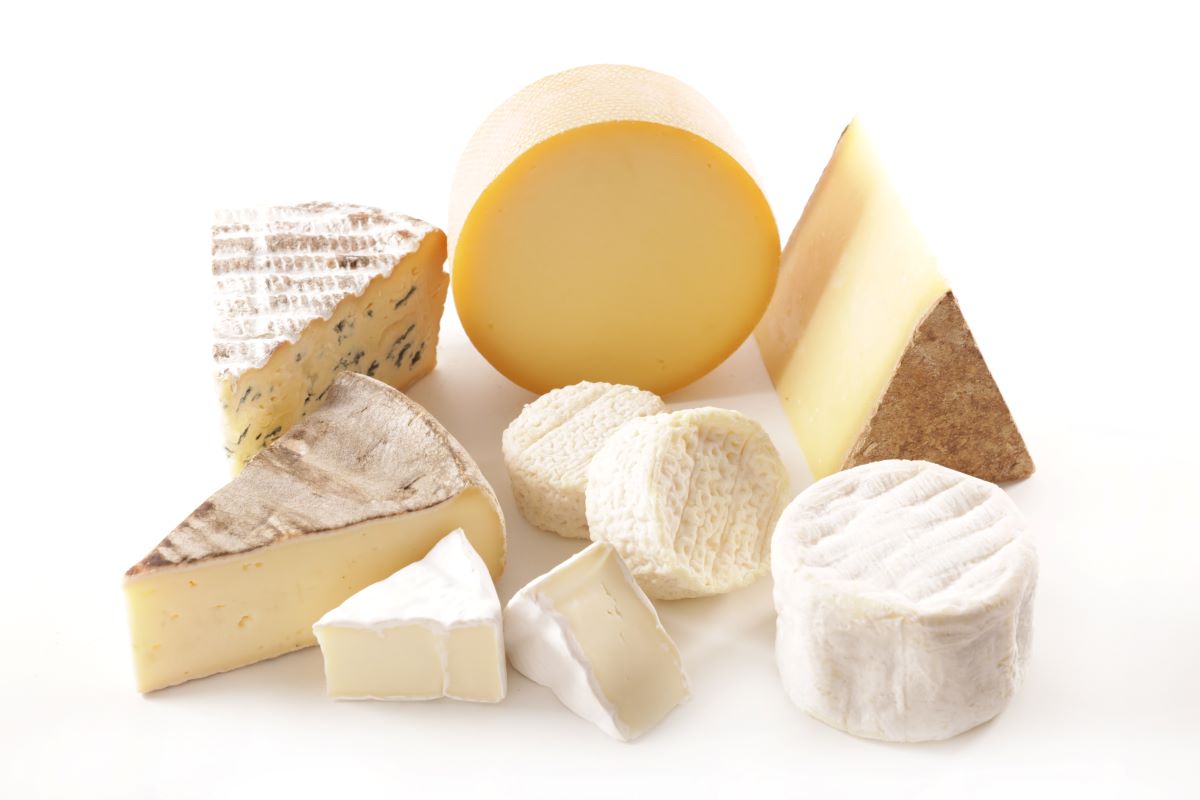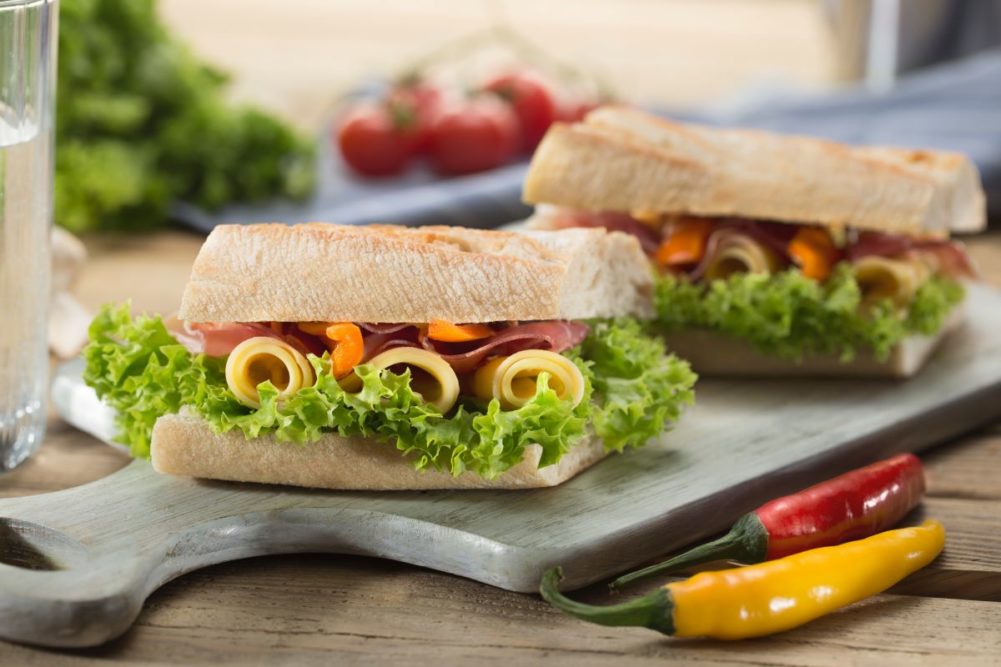Healthy is often in the eyes of the beholder. But with simple callouts, it’s easy to make the deli a destination for health and convenience.
There’s a lot of confusion about the subject of health. Ask five people what they consider to be healthy and you’re likely to receive five different answers. This is in part because no one looks at health, particularly personal health, in the same way. In short, everyone’s got an opinion.
The concept of health reaches far beyond the body or the plate. It’s a tangible extension of identity and includes physical, mental and emotional health. Today, consumers want to know what’s in their food, how it’s produced, and the ethical and environmental impact with science and values driving personal food decisions.
As consumers look to gain more control over this far-reaching subject, they will increasingly look to food manufacturers, producers and their food purveyors to help them make healthier decisions for themselves, their family and the planet.
The instore deli offers a range of options that can be easily customized to accommodate personal and unique definitions of health. Plus, making one’s own meals and snacks offers greater control over the health factor.
1. Chicken
When it comes to protein-based options, chicken remains a crowd-pleaser. The deli offers a range of poultry options from rotisserie, nuggets and strips to grilled and fried options or a classic chicken salad made from upcycled ingredients. A rotisserie chicken is a quick meal option as well as great for leftovers in soups, wraps and salads. Chicken strips and nuggets, grilled fresh on-site, can offer a protein-filled lunchtime option for those looking to create their own sandwich, wrap or salad topping. Even fried options such as popcorn chicken can add a hint of indulgence to an otherwise healthy salad.
Resource: Packaging is essential to a profitable instore deli department, but options must be convenient, reliable and sustainable. St. Louis-based Anchor Packaging’s Crisp Food Technologies containers feature a unique, patented, convection crossflow design to relieve moisture and condensation while maintaining food temperature.
Potential callouts: No hormone/antibiotic, keto friendly, meal kit accompaniment, high-protein, upcycled ingredients, restaurant-like experience, home cooking, prepared on-site.

2. Deli meats
Available from the deli case or pre-packaged, deli meats offer great versatility. This could be in the form of a full-size charcuterie tray for entertaining or an on-the-go lunch version with meat, cheese and dried or fresh fruit. Deli meat can also be the base of a grab-and-go or made-on-site sandwich, complete with fresh-baked roll from the instore bakery. The addition of small slices or chunks of deli meats can add a protein boost to a salad or as an upscale addition to a slice or whole pizza hot from the oven.
Resource: NDP Group’s The Future of Lunch study sees consumers returning to convenient ways to prepare or source lunch. With mobility once again a priority, consumer are seeking out easy-to-transport items and snack kits.
Potential callouts: lower sodium, no hormone/antibiotic, keto, high-protein, restaurant-like experience, sustainability, global experience.

3. Cheese
Cheese can make everything taste better. Slices, chucks and shreds can elevate otherwise basic foods to new levels. Case in point, those charcuterie boards that induce consumers to experiment with new pairings. A slice or two of cheese paired with fruit and/or yogurt can make a quick lunch or snack. Shreds and chunks can also be a great accompaniment for a salad, elevate a sandwich or wrap, or provide a low-carb charcuterie snack. For those who cannot tolerate cheese made with cow’s milk, there are also cheeses made from goat’s milk and sheep’s milk.
Resource: Datassentials research found “healthy” cheese can mean many things. “Healthy” indicates a reduction in stabilizers and preservatives (60%), emphasis on calcium (57%) and protein (54%), and no added colors or flavors (49%) or hormones (48%).
Potential callouts: No hormones, no added colors or flavors, no preservatives, calcium-rich, keto, high-protein, Mediterranean diet, sustainable, global experience.

4. Soup
Available year-round or seasonally, soups can meet the health aspirations of a range of consumers. Easily customizable, broth-based soups can make a better-for-you lunch or a quick grab-and-go meal when accompanied by a sandwich or other side. Slightly richer, cream-based soups may be more pleasing when the weather is cold. Soups also offer a great option for upcycling ingredients and demonstrating sustainability within the department.
Resource: Sustainability trends include using parts of food that would’ve previously been considered kitchen waste. This includes the greens from beets and celery, leaves from sweet potatoes and avocado blossoms. (Technomic)
Potential callouts: keto, plant-based, sustainable, flexitarian, vegan, prepared on-site, clean label, upcycled ingredients.

5. Sandwiches
The humble sandwich can spotlight offerings from throughout the perimeter with sandwiches made with fresh-baked bread or buns from the instore bakery, sliced meats and cheeses from the deli, and fresh produce. Upscale the traditional sandwich with a panini press or grill for hot, RTE sandwiches on-site. Sides can include hot bar items, prepared salads, soups, salad bar, fresh fruit, olives and desserts.
Resource: In 2020, build-your-own sandwiches were responsible for a 21.1% share of the deli-prepared sandwiches category in grocery stores in the US, according to Statista.com.
Potential callouts: plant-based, flexitarian, prepared on-site, restaurant-like experience.

6. Pizza
Pizza checks a number of boxes including value, quality and variety. Its versatility accommodates anything from a grab-n-go slice to a restaurant-like experience minus delivery fees and tip. Depending on the toppings, pizza can offer an indulgent or better-for-you profile. Traditional meat and cheese options remain popular with lots of room for topping experimentation. The pizza pie is a great way to feed a crowd, and with inflationary increases becoming the norm, pizza can offer a delicious bang for the buck. Minus the crust, pizza can also be a keto-friendly option.
Resource: Plant-based cheese alternatives reflect steady growth, according to Kerry Group. Drivers of the trend include nutrition and sustainability. When looking at plant-based protein solutions, it’s important to have price parity with animal-based proteins. (Mintel)
Potential callouts: plant-based, keto, flexitarian, prepared on-site, restaurant-like experience.

7. Meal kits
Schedules are becoming busy again and consumers are looking for ways to continue the family meals and almost-scratch cooking they enjoyed together over the last two years. These include microwave and oven heat-and-eat kits as well as RTE meals. Prepared on-site or in a ghost kitchen, the take-home, grab-and-go kits make the preparation of family meals easy again.
Resource: Kroger, Cincinnati, and Albertsons, Boise, Idaho, acquired subscription meal kit companies Home Chef (Kroger) and Plated (Albertsons) in 2018. The grocers sell the meal kits online and offer them in some stores.
Potential callouts: keto, flexitarian, prepared on-site, plant-based, restaurant-like experience.

8. Bowls
Bowls offer infinite customization and accommodate a range of cultural influences and calorie counts. Stores with a fresh seafood case are set to make poke bowls, meats fresh from the butcher can be grilled on-site, and falafel can offer a vegetarian option. The demonstration aspect of the grocerant format can also make the deli a destination for entertainment.
Resource: Grocerant formats continue to trend. The Metropolitan Market chain, Seattle, features a poke bar with fresh seafood varieties and toppings. Rumi Market and Grill, Cleveland, offers takeaway and dine-in options for Mediterranean including vegetarian-friendly grape leaves and grilled kabobs.
Potential callouts: flexitarian, keto, plant friendly, prepared on-site, restaurant-like experience.

9. Sushi
The continuing mainstreaming of sushi means more options and greater authenticity and freshness than ever before. Even without an in-house seafood counter or dedicated sushi chef, it’s possible to have fresh solutions instore in the form of rolls and sushi-inspired salads. Available by the piece or in multiple count, sushi is perfect for snacks, meals or entertaining.
Resource: Consumers aged 25-34 are the primary consumers of store-made sushi, followed by those age 24 years and younger. (Numerator)
Potential callouts: plant-friendly, vegan, prepared on-site, restaurant-like experience, sustainability, flexitarian.

10. BBQ
The combination of the butcher’s case and an on-site smoker means barbeque is not limited to the backyard. With or without sauce, shredded brisket and smoked meats make great sandwiches, and ribs are always a crowd pleaser. The deli prepared case also features the perfect sides from potato salad and baked beans to fresh-baked buns from the instore bakery.
Resource: HEB, San Antonio, offers smoked in-house meats with fresh, ready-to-go options at its Flaming Bird, South Flo Pizza and True Texas Boil House restaurants. In 2021, Kroger added a permanent restaurant, a branch of Burns Original BBQ, inside one of its Houston-area stores.
Potential callouts: keto, prepared on-site, restaurant-like experience, zero-waste cooking.

11. Fermented
A growing desire for improved immunity and wellbeing finds consumers seeking out fermented items like sauerkraut and kimchi, fortified broths and natural sources of probiotics. One of the most popular fermented items in the deli is the olive. While not fermented as long as sauerkraut or kimchi, olives also provide gut friendly bacteria in the form of probiotics. Plus, they made a great addition to a salad, sandwich, pizza or charcuterie board.
Resource: Gut health is one of the key trends of 2022, according to The Hartman Group. Gut health, defined as awareness of the microbiome as the root of all wellness, includes a connection to mental wellbeing and immunity.
Potential callouts: plant-friendly, sustainability, immunity health, flexitarian, gut health, vegan.

The deli is already a trusted source for convenience and delicious options. With simple callouts, the department can also highlight the health elements consumers already have on their radar.

